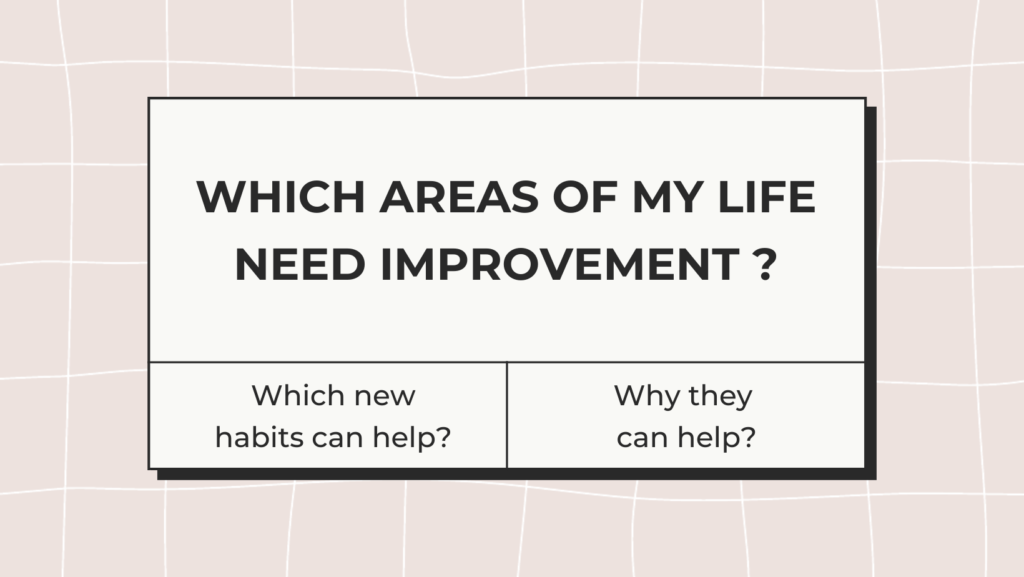Habits & Habit Trackers: all you need to know
Share
Habits and Habit Trackers can be important for success in all areas of your life. Forming a good habit or breaking a bad one can be something that is life-changing. However, it can be difficult to know how to form habits and keep them. Before we dive into Habits and Habit Trackers, it’s a good idea to also understand the meaning of the word “habit”.
What are Habits?
According to the Cambridge Dictionary, a habit is something that you do regularly, sometimes without being conscious that you are doing it. This can be things like the time you wake up, brushing your teeth, reading before bed, etc… Habits can be beneficial if they are making your life better and bad if they can damage your health or annoy others.

How to form a Habit?
Forming habits take consistency! You should expect that it will take at least 30 days of doing a certain habit for it to stick. Here are some habit-forming tips!

Set a Schedule:
Because it needs to be done regularly for it to become habitual, it could be better to set a schedule that you try to do things at the same time.
For example, if you want to start reading every day for 30 minutes you should try and block out your schedule at the same time.
Set Rewards:
Setting rewards can also be a way to keep you motivated to continue trying to form a habit. If you are forming a habit to walk everyday you could decide to get new walking shoes if you continue it for 30 days. Intermediate rewards can be things like getting your favorite coffee if you consistently walk 10 days in a row. Try to be creative with your rewards to have fun with it!
Make it a positive experience:
Making an activity habitual will be easier if you also enjoy doing it. Try to set it up so that it will be a positive experience. If you’re trying to form a meditation habit, you could try to make a special place in your house for meditating. Place some nice candles, cushions, etc… to make it a nice and relaxing experience.
Things might not always go smoothly:
Another tip for forming a habit is to not be disappointed if it doesn’t go smoothly. If you’re determined to form a certain habit, try to assess what went well and what could be better when you try again. It could be that you didn’t set the right rewards for yourself, or that you didn’t schedule it well. Sometimes, it can also just be that this habit doesn’t fit your lifestyle.
How to break a Habit:
Breaking habits are similar to forming habits. After all, breaking a habit is also a type of habit! Here are some additional tips for unique to breaking a habit:
Replace the habit with a healthier one:
A great way to break bad habits is to replace them with a similar but healthier alternative. For example, if you’re trying to break the habit of drinking sugary soda, drink a sugar-free seltzer instead.
Find a community:
For harder to break habits, joining a community can also help! This way you have people to discuss the hardships of breaking the habit but also work together to find ways to overcome them.
Deciding on your Habit goals

Choose a manageable habit goal:
It can be tempting to try and form or break a huge list of habits at the same time! The planning stage can be exciting and inspiring. However, make sure that you choose a manageable number of habits to begin with. Ideally, the number of habits should be about 3-5. Anything more than that will make it more likely for you to feel overwhelmed.
The goal is that after it becomes a habit you won’t have to think about doing them anymore. When your original habit goal sticks, you can consider adding a new habits that you want to form or break.
Go step by step:
Similar to choosing a manageable habit goal, you’ll also want to go step by step. If you want to have a better fitness routine start with 10-20 minutes of exercise per day. Don’t set a habit that will feel too intimidating.
Write a list of habits you want to try:
Another way to decide on your habit goals is to write out a list of habits you want to try. Go through each one and figure out your priorities. Which habit seems the most beneficial for yourself now. Also, try and assess how difficult the habit will be to implement. Easier habits may be better to begin with.
What are Habit Trackers?
Habit trackers are tools that can help you manage and track habits. They usually provide a way for you to list the habits you’re tracking and to check them off each day. Habit trackers can come as apps, you can make your own in a journal, or find an online template. Using a habit tracker can give you a visual way to see your progress and keep you accountable for the habits you’re trying to form.

What kind of Habit Tracker to choose?
These days, there are many habit trackers to choose from. It’s important to find the type of habit tracker that fits your needs most. If one doesn’t work for you, try another one! Everyone’s needs are different.

At the Organized Notebook, we believe that Notion can be a great way to keep track of your habits! Our Habit Tracker template comes with a way to decide your habit goals, set rewards, and reflect on how your habit journey went. It is also meant to provide a way so that at the end of 30 days you might not have to track the habit anymore because it has become a habit!
Feel free to check it out here along with the tutorial: